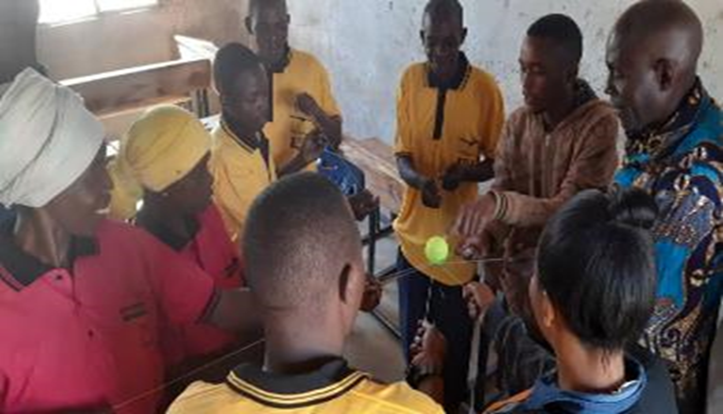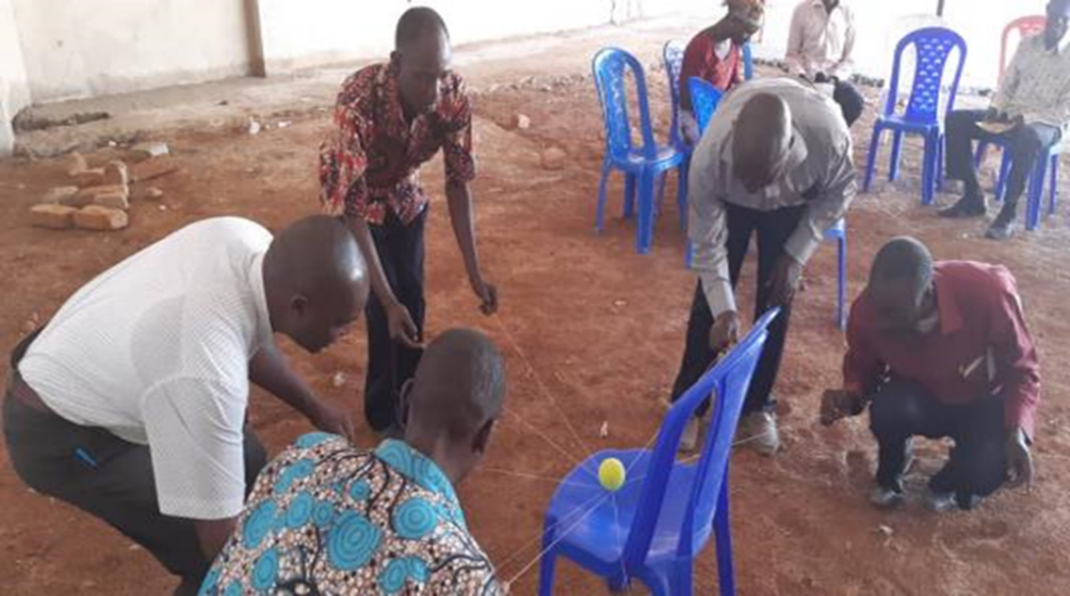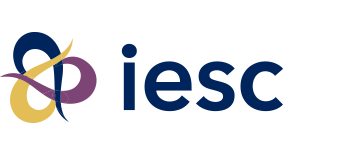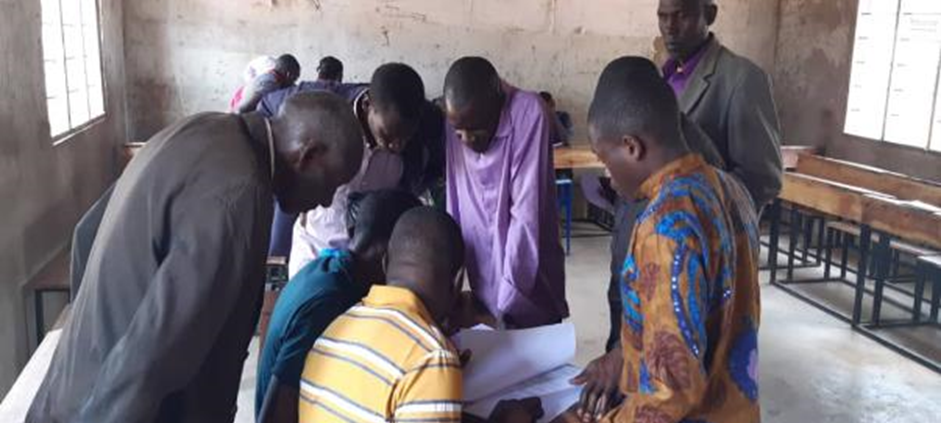National Volunteer Week 2022: Celebrating one volunteer pair’s contributions to farmer groups in Tanzania
IESC F2F VOLUNTEERS STRENGTHEN FARMER GROUPS IN TANZANIA TO HELP THEM POOL THEIR SKILLS AND FINANCIAL RESOURCES AND TAKE MEASURES TO IMPROVE THEIR QUALITY OF LIFE
Tanzania’s agriculture sector employs over 75% of the total population and has the potential to reduce poverty, create jobs, and increase food security for Tanzanians. However, many of the opportunities within the agriculture sector remain largely uncultivated for youth and women populations, and particularly for those living in rural areas. This is because youth, women, and rural producers are often excluded from opportunities to finance their work. To address this issue, Farmer-to-Farmer (F2F) volunteer experts Ms. Neema W. Munisi from Tanzania and Dr. Godwin Apaliyah from the U.S. set out to work with one Tanzanian non-governmental organization (NGO) to improve access to finance for youth and women.

Farmers group members performing group trust exercises during a training.
Cassava Plantation and Agribusiness Foundation (CAPAFO), a local NGO based in Mwanza, Tanzania, implemented a farmer group structure to address the factors that prevent rural producers, and particularly youth and women, from fully realizing the potential of their resources. The NGO supports youth and women smallholder farmers to organize into groups of 25 to 50, allowing them to pool their skills and financial resources and take measures to improve their quality of life. CAPAFO also supports their farmers groups by providing certified cassava and sunflower seeds to help the groups establish profitable farming enterprises to generate income.
Despite CAPAFO’s efforts to create and support the farmers groups, the group was still underperforming. Some groups dissolved after a brief period due to communication issues and a lack of clarity on roles and responsibilities of group members and leaders, resulting in the seed capital provided by CAPAFO being wasted. The goal was to have all group members contribute to overall group success and provide a space for individual members to achieve their own successes as well.
In June 2021, Ms. Neema Munisi and Dr. Godwin Apaliyah embarked on their F2F volunteer assignment to help improve farmers’ groups outcomes and strengthen CAPAFO as a whole. Over the course of three weeks, the pair provided leadership and management training for CAPAFO stakeholders to help improve the performance of CAPAFO farmers’ groups. Ms. Munisi provided in-person support while Dr. Apaliyah supported remotely, and the two trained over 127 individuals, including CAPAFO farmer group leaders from 16 farmers groups, board members, and selected farmer members to enhance their skills and understanding of leadership and management. The training program they designed and delivered focused on communication, negotiation, meeting management, governance, creation of an inclusive workforce, decision making, conflict resolution, organizational roles and responsibilities, and how designating roles and responsibilities contributes to achieving organizational objectives and goals. After delivering the training, the volunteers provided tailored recommendations to the CAPAFO-supported farmers groups in order to improve their operations. They recommended the development of group constitutions and bylaws, in addition to clarifying that all members have a clear vision and understanding of their role in the farmers’ group. If members can each individually answer the question, “Why am I in this group and what is my goal?,” they will be set up to better achieve their objectives while strengthening group unity and cohesion.

Training attendees engaging in teambuilding exercises.
Makelemo Jumanne, general secretary of CAPAFO’s Mshikamano Youth Group located in Kafita village, joined the training along with ten other members of the youth group. After attending the F2F volunteers’ training, Makelemo and the ten other attendees led their fellow members through the process of revising their group constitutions and bylaws. They also elected new group leaders and established a group Saving and Credit service in August 2021 using 200,000 Tanzania Shillings (TZS), or approximately US $100, obtained from sales of sunflowers harvested from the group’s farm. At that point Makelemo noted, “We are about to take a step towards inclusive agri-business development by expanding access to finance among our members.” Using new leadership and management practices learned through the training, Mshikamano Youth Group’s 11 training attendees worked diligently to create an improved structure for their farmers group and began to conduct regular group meetings to strengthen unity and cohesion among group members. With these new organizational structures in place, the group was able to brainstorm strategies to improve group members’ quality of life. They pooled their scarce financial resources to undertake profitable activities as a group. Eight months after the training, Mshikamano Youth Group had managed to mobilize their shared resources to grow the group’s overall financial capacity, and their working capital wealth now totals approximately TZS 10,000,000 (US $4,000) for credit and saving services. Notably, the group is now able to provide a loan of up to TZS 5,000,000 (US $2,000) per group member, which is extremely impactful for group members who were previously excluded from the Tanzanian financial sector.
Speaking about the impact of F2F’s support on her ability to access finance to support her farm agribusiness, Mshikamano Youth Group member and three-time loan beneficiary of Mshikamano servicing and credit services Ms. Celia Charles noted, “Even though I have been expending extra effort and working more hours on my agribusiness than before, I have been substantially lagging behind when it comes to crop yields and earnings mainly due to lack of access to financing. With this support, it has been possible for me to increase my agribusiness profit to provide higher earnings and reliable sources of income.”
IESC’s F2F Access to Finance program will continue to support Mshikamano Youth Group’s loan monitoring and recovery strategy and will also support the development of tools that will help the group to effectively provide well-organized financial services to their members and small entrepreneurs in the village.
The American people, through the U.S. Agency for International Development, have provided economic and humanitarian assistance worldwide for more than 50 years. The John Ogonowski and Doug Bereuter Farmer-to-Farmer Program (F2F) provides technical assistance from U.S. volunteers to farmers, farm groups, agribusinesses and other agriculture sector institutions in developing and transitional countries with the goal of promoting sustainable improvements in food security and agricultural processing, production, and marketing.



